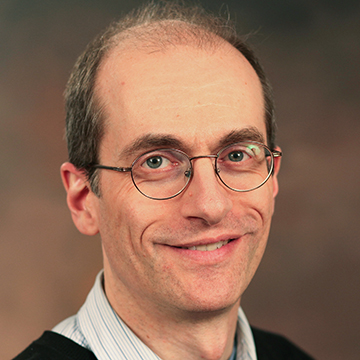Di Muzio, “The Dawn of the Future-like-ours Argument Against Abortion,” International Journal of Applied Philosophy 35, no. 2 (2021): 209-226.
Although several scholars have held that the Greeks and the Romans viewed abortion as morally unproblematic, an examination of three ancient texts reveals that, starting around the first century CE, some Greek and Roman writers were willing to explore reasons for opposing abortion on ethical grounds (i.e., reasons based on the conviction that abortion is an injustice committed against the fetus). The three texts introduce a form of opposition to abortion that has come to be known in our time as the future-like-ours argument against abortion. The present paper explores the argument that emerges from the three ancient texts and compares it to the work of Don Marquis, the best-known contemporary defender of a future-like-ours argument against abortion. The comparison reveals significant similarities, which are ultimately attributable to a common set of intuitions about what makes killing wrong and premature death tragic.
Di Muzio, “The Duties of Immigrants and the Controversy Over Face Veils,” International Journal of Applied Philosophy 34, no. 1 (2020): 1-17.
The passing of the French law that prohibits face coverings, such as the Islamic burqa, in public places ignited a complex philosophical and legal debate. Participants in the debate have typically focused on the boundaries between individual and religious liberties, on the one hand, and state-imposed limitations on public behaviors, on the other. The author of this paper wishes to introduce a change in perspective by concentrating instead on the duties immigrants have to the citizens of the countries that host them. The author finds that, under certain circumstances, immigrants may have a moral duty to conform to the ethical preferences of the communities they have come to live and interact with.
Di Muzio, “Changing God’s Mind,” Neue Zeitschrift für Systematische Theologie und Religionsphilosophie 61 (2019): 241-255.
Since God is perfect, he should never have a reason for changing his mind. However, some biblical passages describe God as modifying his chosen course of action in response to prayer. How could human prayers ever be efficacious if God’s mind is always independently set on doing what is best? This article examines contemporary attempts to answer the question by emphasizing the benefits of prayer for the petitioner. After exposing some difficulties with this solution, the author proposes that one can overcome the problem of petitionary prayer by reflecting on the relationship God wishes to develop with his human creatures. From this vantage point, one can see that God’s willingness to change his mind in response to prayer proceeds from his free decision to accept his human creatures’ input as he partners with them to realize his plan for the world.
Di Muzio, “A Collaborative Model of Petitionary Prayer,” Religious Studies 54, no. 1 (2018): 37-54.
Petitionary prayer appears pointless in light of divine attributes like omniscience, omnipotence, and omnibenevolence. Several philosophers have attempted to reinstate the significance of petitionary prayer by drawing attention to its indirect benefits. The article analyzes the shortcomings in this strategy and defends a different solution to the difficulty. Conceiving of God as motivated by the desire to form a loving partnership with human beings allows one to formulate a collaborative account of petitionary prayer. On this model, God freely chooses to accede to some human requests in order to incorporate human desires and projects into His plan for the world.
Di Muzio, “A Simplified Ontological Argument and Fictional Entities,” Think 14 (2015): 101-107.
This paper shows that a recent, simplified version of St. Anselm’s proof of the existence of God has its flank open to Gaunilo’s ‘Lost Island’ objection. Reformulating Anselm’s line of reasoning in terms of the distinction between mediated and unmediated causal powers, as the simplified proof does, makes it harder for Anselm’s supporters to refute the objection that the ontological argument absurdly entails the existence of all kinds of fictional entities.
Di Muzio, “Reincarnation and Infinite Punishment in Hell,” International Journal for Philosophy of Religion 74 (2013): 167-180.
In the first part of the paper, I argue that Christians should incorporate the theory of reincarnation into their belief system. The problem of the apparent disproportion between finite human sin and infinite punishment in Hell becomes far more tractable against the background of reincarnation. In the second part of the paper, I address and answer three objections that may be raised against a Christian theory of reincarnation. The first objection is based on the role of memory in identity, the second points to the essential unity of body and soul, and the third revolves around the suggestion that living multiple lives may more easily lead to damnation than to salvation.
Di Muzio, “Aristotle’s Alleged Moral Determinism in the Nicomachean Ethics,” Journal of Philosophical Research 33 (2008): 19-32.
Did Aristotle believe that upbringing determines character, and character, in turn, determines action? Some scholars answer this question in the affirmative and thus read Aristotle as a determinist with little use for the idea that people are morally responsible for what they do. The present paper counters this interpretation by showing that a deterministic reading of Aristotle’s theory of action and character is indefensible in the face of the text. The author points to three main facts: (1) a passage in the Nicomachean Ethics shows conclusively that Aristotle did not regard upbringing as determining moral character, (2) the doctrine of character expounded in Nicomachean Ethics III does not entail that people can only act in conformity with their moral dispositions, and (3) Aristotle viewed alternate possibilities as genuinely open to moral agents, not as available to them only in principle (i.e., if they had received a different upbringing or had had different beliefs and desires).
Di Muzio, “The Problem of Divine Inefficiency,” Think 17/18 (2008): 75-83.
This paper develops a novel objection to theism.
Di Muzio, “Epicurus’ Emergent Atomism,” Philo 10 (2007): 1-11.
The ancient Greek philosopher Epicurus regarded his atomism as a cure for the fear of natural phenomena. An atomistic philosophy, however, can easily lead to determinism and epiphenomenalism, which threaten human happiness even more than the fear of nature. The present paper attempts to reconstruct Epicurus’ strategy for dealing with the unwanted consequences of his atomism. The author argues that Epicurus employed a form of emergentism about properties to show that freedom exists and mental states are not causally inert epiphenomena.
Di Muzio, “The Immorality of Horror Films,” International Journal of Applied Philosophy 20 (2006): 277-294. Reprinted in W. H. Shaw (ed.), Social and Personal Ethics (8th ed.), Boston, MA: Wadsworth, 2014, pp. 209-215.
With the exception of pornography, the morality of popular forms of entertainment has not been studied extensively by philosophers. The present paper aims to start discussion on the moral status of horror films, whose popularity and success have grown steadily since the 1970s. In particular, the author focuses on so-called “slasher” or “gorefest” films, where the narration revolves around the graphic and realistic depiction of a series of murders. The paper’s main thesis is that it is immoral to produce, distribute, and view films of this kind. The reasons are traced back to two facts: 1) living the moral life requires being disposed to react compassionately to the sight of human victimization, and 2) the most violent horror films either overwhelm the spectator or promote a detachment from violence that may interfere with the development and maintenance of the correct reactive attitudes to human victimization.
Di Muzio, “Theism and the Meaning of Life,” Ars Disputandi 6 (2006): 1-12.
Theists are inclined to assert that human life would be meaningless if there was no personal immortality and God did not exist. The present paper aims to evaluate the truth of this claim. The author first explores the conception of meaning that is at the roots of the theistic position. After pointing out some difficulties with it, the author shows that, on a plausible alternative interpretation of what it is for an activity to have meaning, human life would fully qualify as meaningful even if it were not inscribed in a universal divine plan.
Di Muzio, “Aristotle on Improving One’s Character,” Phronesis 45 (2000): 205-219.
Contrary to what most interpreters hold, in the Nicomachean Ethics Aristotle is not committed to the view that people of established vicious character could never become good. The present paper proves this result (1) by giving a better reading of 1114 a 12-21, a passage which has traditionally been taken to assert that unjust and self-indulgent people are doomed to a lifetime of vice; (2) by showing that when Aristotle refers to self-indulgent people as “incurable,” he does not mean that they could never change, but only that they could not change as a result of external influences such as persuasion or punishment; (3) by proving that although Aristotle regards the desires of vicious people as determined by their character, there is room within Aristotelian moral psychology for the possibility that people of corrupt character become motivated to begin a process of moral reform.



